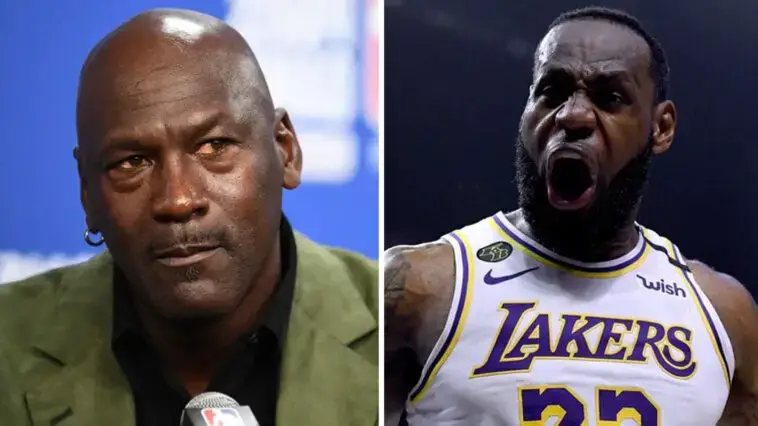In a surprising move that has stirred the sports world, basketball legend Michael Jordan has turned down a $200 million commercial opportunity alongside fellow NBA star LeBron James. Jordan reportedly dismissed the offer, referring to James as a “woke crybaby,” which has added a new layer of controversy to the relationship between the two basketball icons.
The proposed commercial deal, estimated to be worth $200 million, was expected to unite two of the greatest players in basketball history for a major advertising campaign. However, Jordan’s refusal and his critical remark about James have sparked discussions about the underlying tensions that may exist between them.
Michael Jordan, known for his competitive spirit and six NBA championships with the Chicago Bulls, has rarely made public comments about current players. However, his use of the term “woke crybaby” in reference to LeBron James, who has been vocal about social justice issues and political matters, indicates a stark difference in their public personas and approaches to activism.

LeBron James, a four-time NBA champion and active social advocate, has not yet responded to Jordan’s comments. James has been at the forefront of several initiatives aimed at addressing racial inequality and promoting social change, which he often discusses openly in the media.
The news of the declined commercial deal and Jordan’s remarks quickly spread across social media, igniting a debate among fans and commentators. Some have expressed disappointment in Jordan’s choice of words, while others support his right to express his views freely.
This incident raises questions about the impact of personal beliefs and public statements on professional relationships in sports. It also highlights the evolving nature of athlete activism and the diverse ways in which prominent figures like Jordan and James engage with social and political issues.
As the story develops, the sports community is keenly watching to see if there will be any reconciliation between the two stars or further comments from either party regarding the fallout from the declined commercial opportunity.





